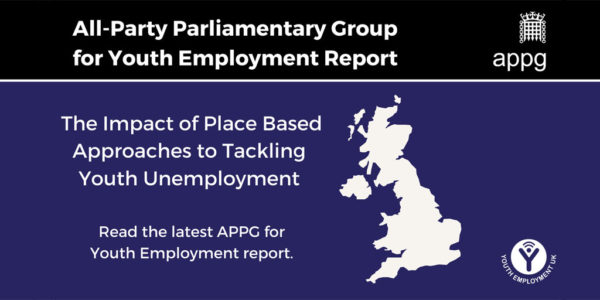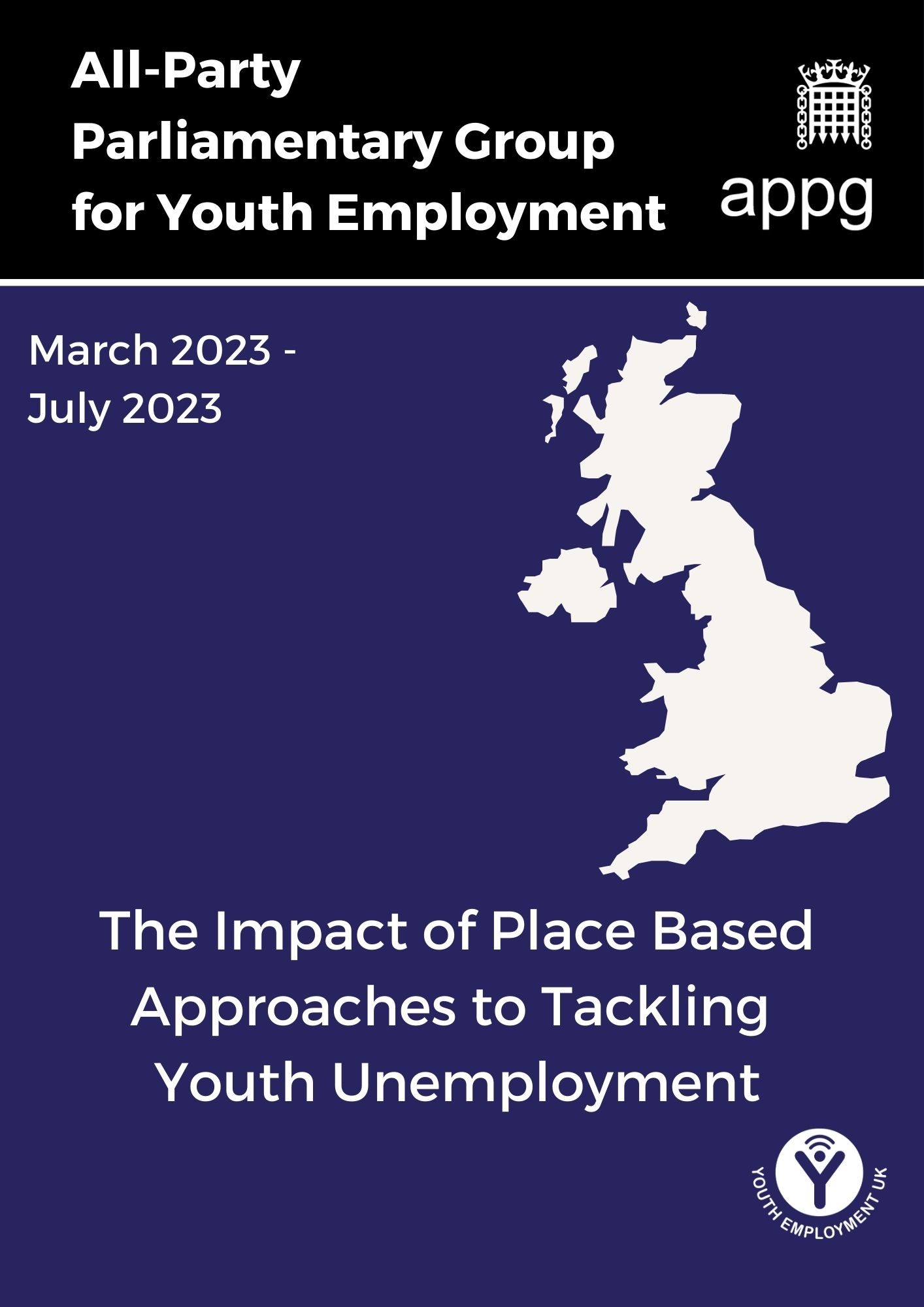Support for young people and youth employment that responds to local challenges, labour market demands and the needs of the young people in their communities is an effective way to approach the youth unemployment challenge we currently face, finds the latest report from the APPG for Youth Employment.
However, the report also identifies a range of barriers to the effective implementation of place based approaches to youth employment, meaning many communities and young people are still being underserved and locked out of opportunity.
The inquiry ran between March 2023 and July 2023 hearing from key experts and young people themselves.
Key Findings
1. Place Matters – Submissions to the inquiry unanimously recognise the significance that place plays in the lives of young people. Place matters at both a macro and micro level; there is unfairness in the provision available in our coastal communities, urban and rural areas and there is unfairness in our communities too right down to a postcode level.
2. Place plays an important role in young people’s exposure to and access to a range of services and opportunities that support positive transitions to employment – Access to high-quality careers provision, extra-curricular activities, positive role models, enterprising opportunities, developing ‘social capital’ and positive networks, work experience and other activities which provide essential personal development and confidence building is not equal for all young people across the country.
3. There is an interplay between economic and social deprivation and place which contributes to high youth unemployment, NEET rates and a lack of access to opportunities for some young people dependent on where they live – The intersectionality of measures of deprivation highlight the complex nature of place and the need for a place based approach to youth unemployment which recognises and challenges the various elements of disadvantage that some young people face.
4. There are a range of challenges inhibiting the effectiveness of place based approaches and interventions which must be addressed – These include:
-
- A complex network of provision at both a national and local level and complex funding arrangements for skills and employment support.
- Lack of access to quality, reliable and detailed data on young people’s post-16 destinations, employment status and NEET status at a local level.
- Poor connectivity in terms of transport, digital communication and social networking further disadvantage young people at a place based level.
- Careers Education, Information, Advice and Guidance is not sufficiently tailored to local labour market needs or local employment, education and training opportunities.
- Poor visibility of existing local services and employment programmes available to support young people and a lack of awareness young people have about how and where to access support locally.
5. Place based approaches to youth employment can and do work – There are several factors which support the efficacy of place based approaches, these include:
- Collaboration with local stakeholders at all levels.
- Programmes that are tailored to meet specific needs of local areas, circumstances and labour markets.
- Early intervention which is coordinated and delivered at a local level.
- Access to long-term funding to ensure consistency of programme delivery and measurable outcomes.
- Services which are accessible to young people where they are and offer a range of services (i.e. Youth Hub approach).
- Involvement of Youth Voice in the design and delivery of support services, careers education, work experience, employment and training opportunities.
Recommendations
It is clear that place has a significant impact on young people’s access to opportunity and can play a vital role in tackling youth unemployment. Evidence provided to this inquiry demonstrates the power of place for young people and the impact it can have on their aspirations, confidence and access to quality opportunities. To address the youth unemployment challenge we are currently facing, policy responses need to be rooted in a place based approach which recognises the distinct challenges, contexts and opportunities of different locations across the country.
The government and the Department for Levelling Up, Housing and Communities should recognise place based approaches as key to tackling youth employment by including a commitment to tackling youth employment as one of the 2022 Levelling Up White Paper missions.
The APPG for Youth Employment has put forward a full set of recommendations for the government to consider to ensure all young people are able to access the right levels of support and access to opportunities wherever they live.
Quote from Laura-Jane Rawlings, CEO of Youth Employment UK:
“We know that not enough young people are able to access the support they need to move into good quality work where they live and for too many young people accessing the right provision at the right time feels like a postcode lottery.
A place-based approach to supporting young people into employment, which responds to local labour market challenges and the experiences and contexts of the young people where they live is crucial if we are to tackle the youth unemployment challenge.”






